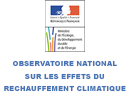ACCIES – Analysis of Climate Change and Impacts Thereof on Water and Human Health
ACCIES – Analysis of Climate Change and Impacts Thereof on Water and Human Health
The general objective of the ACCIES project is to: (I) develop an integrated methodology for studying the impacts of climate change in the field of water resources and in that of public health; and (II) study the risk of emergence or re-emergence of vector-borne diseases (arboviroses and malaria), at the regional level, along a gradient extending from the African Sahel to Southern Europe. To this end, we propose: (i) to test the validity of GCM outputs within the zone under study for the current climate; (ii) to study the methodological issues due to disparities in scale between climate models and hydrological and epidemiological impact models, then, taking into account the errors found uniformly during the first stage; (iii) to establish a diagnosis of our ability to produce impact scenarios, in particular as pertains to water resources and the emergence of vector-borne diseases.
The impact of climate variability on the emergence and re-emergence of vector-borne diseases will be studied on the basis of epidemiological models: (i) wherein the stated variables are vector (mosquito) aggressiveness factors with regard to the host population; and (ii) wherein the control variables are forced by climate and hydrological model outputs. Within an epidemic process, the infection reaction (transmission of a pathogen agent) is seen as a local mechanism (square degree scale and daily frequency), forced by precipitation, temperature, surface humidity, marsh filling, etc. On the climate forcing aspect, we will use coupled simulations produced by the CNRM’s Large-Scale Meteorology and Climate Group, with the atmospheric general circulation model ARPEGE-Climat in order to study climate response to increasing greenhouse gas effects. Heat, evaporation and wind friction exchanges at the ocean’s surface will be carried out by the OASIS coupler developed for CERFACS.
To establish the connection between the fields resolved by atmospheric data from simulations on GCMs and the inputs of hydrological and epidemiological models, we will develop downscaling techniques. Indeed, the resolution of processes depicted by the climate models (GCMs) is much larger (>100 km) than those required for input by hydrological and epidemiological models (<1 km). The fields reproduced by GCMs are less reliable (higher systematic error) at finer scales and on dynamic variables, which require specific parameters (such as precipitation). One example is the spatial variation in precipitation alone on a 100-km drainage basin, which has first-order effects on trickling. Furthermore, the way in which rain is spread throughout the day has major effects on the level of hydrology and entomology.
To assess the uncertainties relating to the impact of health on climate variations, we will use a methodology derived from the work conducted by Hulme and Carter (1999). The region studied for health impacts, i.e., risk of emergence of vector-borne diseases of interest (arboviroses and malaria), will stretch from the African Sahel to Southern Europe. We will focus in particular on a Sahelian zone (southern latitudes) located on either side of the malaria belt; and on a Mediterranean zone (northern latitudes) marked, over the past few years, by several epidemics of West Nile Diseases. The mesh size studied will be the square degree. However, the study of hydrological and epidemiological impact processes will be carried out at the square-kilometre scale. Several one square-degree sites will be used to estimate impact model parameters: (i) one pair of sites to the North, in the Rhone River Basin (Camargue and Lyonnais); (ii) and several sites in the South – the Niamey Region, tributaries of the right bank of the middle Niger (Burkina, Niger), the Mopti Region on the banks of the Niger (Mali) and the region of Saint-Louis on the river’s delta (Senegal).
| Coordinators |
Philippe Sabatier, Responsable, Equipe Environnement et Prévision de la Santé des Populations |
| Partnership |
Université Joseph Fourrier de Grenoble |
| Funding |
MEEDDM
|




